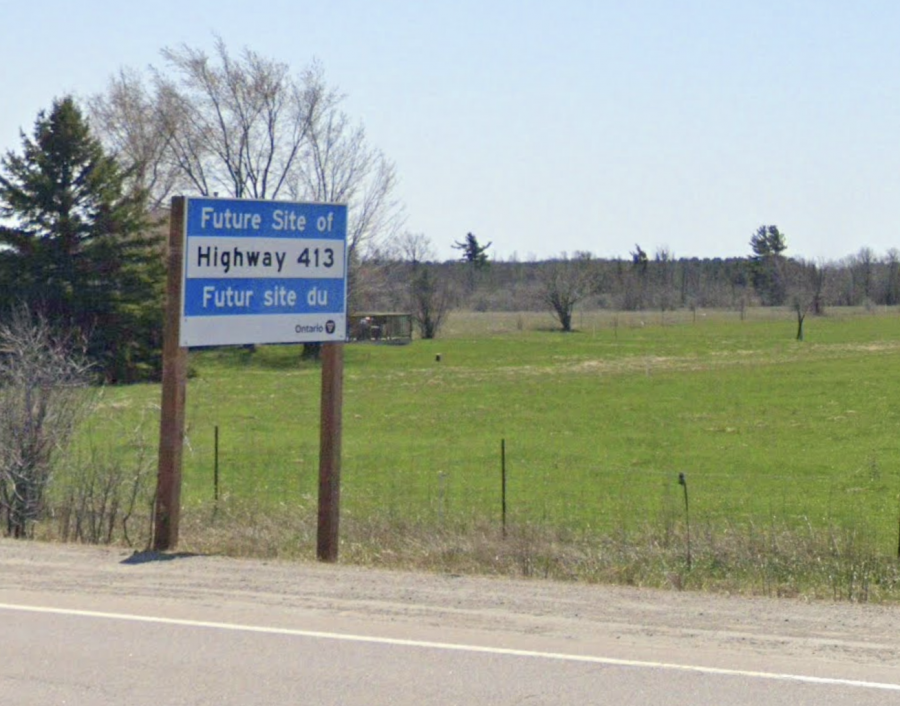One Canadian Anglican says she thinks that Christians have failed in their duty to care for the environment.
“It’s a sacred call from God,” says Elin Goulden, who works as a social justice and advocacy consultant for the Anglican Church of Canada’s Toronto diocese. “We’ve done a spectacularly bad job of this call.”
You may unsubscribe from any of our newsletters at any time.
That is why she felt compelled to sign an open letter speaking out against the proposed construction of Highway 413 in Ontario. Goulden believes that humans are in a “covenantal relationship” with nature, which involves helping to renew and sustain it.
Former United Church of Canada moderator Mardi Tindal says she also signed the letter as a matter of faith.
“Because I’m a person of faith, I’m committed to loving relationships. And there’s no greater or more pressing issue of faith today than the need to take loving action for the sake of the whole earth community,” says Tindal, who sits on Broadview’s board of directors.
Goulden and Tindal are two of more than 50 faith leaders and religious organizations who have signed the letter. Among the other signatories are the Anglican Diocese of Toronto, several other United Church ministers, a handful of Jewish rabbis, EnviroMuslims, and the Noor Cultural Centre.
The proposed multi-billion-dollar, 52-kilometre highway would connect the southwestern Ontario regions of York, Peel and Halton, encircling Georgetown and Brampton in the west before heading north toward Bolton, Vaughan and King City. It would connect to major existing highways — Highway 401, Highway 410 and Highway 427 — and branch out to Highway 400 north of Vaughan.
“This freeway would slice through the Greenbelt, destroying nearly six kilometres of forest and 75 wetlands. It would pave 2,000 acres of farmland and threaten dozens of at-risk animals,” the Dec. 14 letter — organized by the David Suzuki Foundation — states. The Ontario Greenbelt is a two-million-acre protected area consisting of forests, farmland, wetlands and watersheds.
Below: The proposed route for Highway 413 would cut through Nashville Conservation Reserve in Vaughan, Ont. In the photo, people opposed to the highway pose with signs.
View this post on Instagram
“Congestion will not be solved by new highways that incentivize additional traffic,” it adds. “Rather, we need expansion of public transit — including GO trains, electric buses and light rail — and the creation of more walkable and bike-friendly communities.”
The Ontario government says that Highway 413 is needed to meet the demands of anticipated population growth. “The Greater Golden Horseshoe is one of the fastest-growing regions in North America,” says a government website dedicated to the project. “It is expected to attract 1 million new people every five years, reaching nearly 15 million by 2051.” The costs of congestion, at $11 billion per year, together with related carbon emissions, are, it adds, reason to build the proposed highway.
But Gideon Forman, a policy analyst with the David Suzuki Foundation who helped organize the letter, says there’s ample evidence that new mega-highways induce demand. “It’s terrible from a climate point of view; it won’t tackle the congestion issue, and it will destroy some of the most beautiful farmland and natural space in southern Ontario,” he says of the proposed highway. Forman says he has little faith in the Ontario government’s ability to protect the environment. He cites a 2021 statement from the auditor general’s office that the Ontario government is “failing to protect species at risk as required by the Endangered Species Act.”
More on Broadview:
- Wetlands vs. developers: A small-town battle with national ramifications
- 6 books about the climate crisis that offer hope
- Why compostable and biobased plastics won’t save the planet
Others, from scientists to national celebrities like Margaret Atwood, have previously sounded alarm about the proposed highway. Public opinion polls show that Ontario residents are also overwhelmingly opposed to its construction. In 2021, EKOS Research reported that residents in the Greater Toronto Area overwhelmingly wanted greater protection of the Greenbelt. “There’s enormous public support — and growing — for keeping our Greenbelt highway-free,” Forman says.
The Ontario government has responded to such criticism by stating that its “preferred route for Highway 413 was chosen to minimize impacts to the Greenbelt,” adding that it will prioritize environmental concerns as the project forges ahead.
According to Goulden, many people in her diocese belong to rural congregations where the prospect of lost farmland is striking a chord. “People are very concerned about the loss of arable land; people are very concerned about the effect on our water and watersheds,” she says, adding that several individuals have joined local environmental advocacy groups.
For Tindal, the proposed removal of land from the Greenbelt is also personal. She grew up on a farm just north of Toronto, where her father ploughed fields that would be impacted by Highway 413. “These lands are some of the most productive agricultural lands in the country,” she says.
Both Goulden and Tindal are hopeful that the letter, together with other measures, will spur the Ontario government to abandon its plans. “If there is sufficient public outcry, they have been known to do 180s on things,” Goulden says.
“It’s important that our hope run deep enough that we have the courage of our convictions,” Tindal says. “We must not succumb to cynicism on one side, or to ungrounded idealism on the other.”
***
Julie McGonegal is an associate editor at Broadview.














